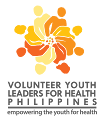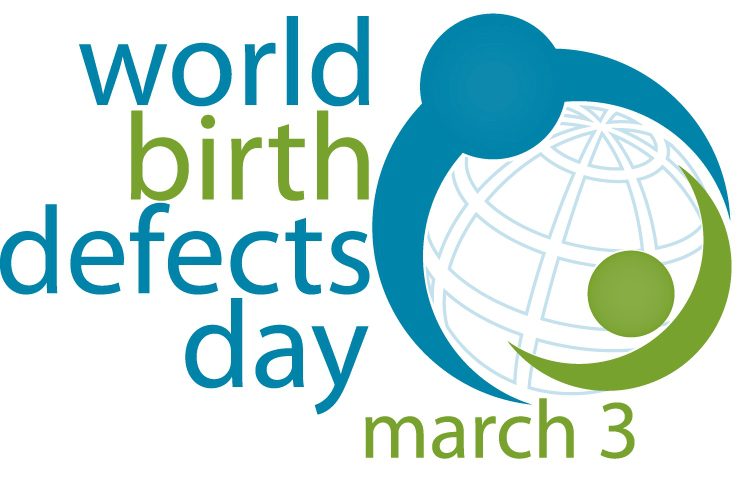
WHO defines birth defects as congenital malformations, deformations and chromosomal abnormalities. They can be structural or functional abnormalities, including metabolic disorders, which are present from birth. Birth defects can be life-threatening conditions that most often result to longterm disability.
Yearly, 7.9 million children are born with serious birth defects which translate to 6% of total births worldwide. In a 2000-2013 World Health Organization (WHO) report, out of 2.761 M deaths in children, 9.9% or roughly 276,000 were caused by congenital anomalies. It is a global problem but the severity of its impact is felt more in low and middle class countries like the Philippines where congenital anomalies have remained in the top 10 causes of deaths in a lifespan over the last 50 years.
To address this problem, the need to establish a systematic and accurate surveillance is crucial. A comprehensive study of the causes of birth defects can pave the way to recommendations, policies and programs that will help prevent, manage, and improve the lives of children living with these congenital conditions.
Birth defects
WHO defines birth defects as congenital malformations, deformations and chromosomal abnormalities. They can be structural or functional abnormalities, including metabolic disorders, which are present from birth.
Birth defects can be life-threatening conditions that most often result in long-term disability. This becomes a burden to individuals affected and their families as well as they cause a negative impact on health-care systems and societies. Currently, more than 7,000 different birth defects have been identified that are genetic or partially genetic in origin mostly occurring before conception (preconception), or after conception but before birth (postconception). While more than half of these defects have no established causes, some may be linked to gene defects, chromosomal disorders, multifactorial inheritance, environmental teratogens and micronutrial deficiencies. Maternal health is also among the crucial factors. Exposure to infectious diseases, such as syphilis and rubella, can cause significant birth defects in low- and middle-income countries. Other factors that may cause birth defects are maternal illness, such as diabetes mellitus, deficiency in iodine and folic acid, exposure to medicines and recreational drugs, such as alcohol and tobacco, select environmental chemicals, and high doses of radiation.
Prevention
With so much factors to consider in the causes of birth defects, a plethora of preventive programs must also be in place. In the 63rd World Health Assembly of WHO in 2010, a series of multiplatform approaches were to be considered. Birth defects that are environmental in origin may be prevented through public health programs, such as prevention of sexually transmitted disease infections, policies in control and management of chemicals, vaccinations, and fortification of food with micronutrients. Preconception health of women in their reproductive age must also be considered to ensure optimal physical and mental wellbeing at the onset and during early pregnancy to increase the likelihood of a normal and healthy baby. Furthermore, screening of newborn infants for congenital disorders expedites early detection. This ensures that infants will be given the proper treatment and care, making some of the birth defects manageable and preventing them from
becoming life threatening.
Birth Defects in the Philippines
Despite the enormity of the birth defects problem, there is no centralized birth registry in the Philippines. The UP Manila National Institutes of Health’s (NIH) Institute of Human Genetics,in partnership with the Department of Health (DOH), has conducted a limited hospital and community surveillance project with the following objectives: (1) to implement a surveillance program for newborns with birth defects in different settings, such as government hospitals, private hospitals, and community health units; (2) to determine the incidence of birth defects in all participating sites; (3) to determine the rate of occurrence of different types of birth defects; (4) to provide morbidity and mortality statistics to assist in national policy and program planning; (5) to identify possible risk factors for commonly encountered birth defects; and (6) to make recommendations for adoption of BDS on a nationwide scale.
A total of 82 participating health facilities revealed the top 10 birth defects: (1) oral facial clefts; (2) multiple congenital anomalies; (3) talipes equinovarus; (4) neural tube defects; (5) limb reduction deformities; (6) Down syndrome; (7) congenital hydrocephalus; (8) imperforate anus; (9) hypospadia; and (10) hydrocele.
Birth defects registration has been difficult to implement despite being free and requiring only the cooperation of the health provider to fill up a form and submit for proper recording. Although it is ideal that the Philippines participate in the International Clearinghouse for Birth Defects Surveillance and Research (ICBDSR), engagement is impossible until our health providers (physicians, nurses, midwives) assist in providing accurate birth defects registration reports.
One of the major milestones of the BDS is Administrative Order 2014-0035 issued by the DOH on the Implementing Guidelines on the Setting up of Newborn Screening Continuing Clinics. Anchored in this AO is the Birth Defects Surveillance Continuing Clinic (BDS CC). In the same structure and facility of Newborn Screening Continuing Clinics is BDS CC. This is an ambulatory clinic based on regional and provincial referral centers identified by DOH. The clinic will cater to patients with birth defects for diagnosis and long-term management. Currently, BDS is divided into four cluster groups; North Luzon, National Capital Region-South Luzon, Visayas, and Mindanao. Under these clusters are 14 BDS CC. These are Ilocos Training Hospital, Cagayan Valley Medical Center, Jose Lingad Memorial Regional Hospital, Baguio General Hospital and Medical Center, Philippine General Hospital, Bicol Regional Training and Teaching Hospital, General Emilio Aguinaldo Memorial Hospital, West Visayas State University Medical Center, Vicente Sotto Memorial Medical Center, Eastern Visayas Regional Medical Center, Zamboanga City Medical Center, Northern Mindanao Medical Center, Southern Philippines Medical Center, and Cotabato Regional Medical Center.
Dr. Maria Melanie Liberty B.Alcausin, consultant of the North Luzon BDS cluster, emphasizes the importance of data gathered from the surveillance. “The data would support the policies on folic acid supplementation and fortification and policies on better immunization of women of reproductive age,” she stated. Folate is a B-vitamin that plays a significant role in preventing birth defects, particularly of the baby’s brain and spine, which are collectively known as neural
tube defects (NTDs). Folic acid is the synthetic form of folate that occurs in fortification and supplementation. Folic acid is one of the water-soluble vitamins (B9) that occurs in food. It is not stored in the body, ergo, a continuous supply of the vitamin is needed on a daily basis. Folic acid is needed at least a month prior to pregnancy and on the first trimester. However, not only are most pregnancies unplanned, most women are also unaware of the importance of taking folic acid when they reach sexual maturity.
In a recent Science Legislative Forum on Folic Acid hosted by the National Academy of Science and Technology, Philippines on June 28, 2016, Dr. Marissa B. Lukban, Head of the Section of Pediatric Neurology, Departments of Pediatrics and Neurosciences at the Philippine General Hospital (PGH), Manila, discussed the burden of NTDs in the Philippines. According to the data she presented, the occurrence of NTDs at the PGH is 23 per 10,000 live births. Dr. Helena Pachon, senior nutrition scientist of Food Fortification Initiative, Emory University USA, mentioned that based on estimates of NTDs in the Philippines, fortification with folic acid could prevent between 3,000 and 3,500 babies from being born with a neural tube defect per year. She also presented data from the 2008 National Nutrition Survey of the Food and Nutrition Research Institute which suggests that 40-60% of reproductive age women in the Philippines are folate deficient; a substantially larger proportion are, therefore, folate insufficient
Policy Development
As there are no existing folic acid fortification efforts in the Philippines and supplementation efforts had low coverage, there is a need to put a comprehensive policy in place not only to increase the awareness and knowledge on how folic acid can prevent NTDs but also to improve the maternal health of every Filipino mother and woman of child-bearing age. Dr. Carmencita Padilla has been working with Hon. Pia Cayetano at the House of Representatives on this comprehensive policy. On August 25, 2016, Hon. Cayetano filed HB 3341, an act establishing an integrated utilization and promotion of folic acid food fortification and supplementation. This is cosponsored by Hon. Federico Sandoval II.
Among the highlights of the proposed bill are: to ensure that every woman of reproductive age has access to food and food products containing folate and folic acid and folic acid supplements to reduce the risk of miscarriage and babies with NTDs and other birth defects; to ensure that there is adequate supply of folic acid-fortified food and food products and folic acid tablets at an affordable price; to ensure that there is sufficient and correct information on the role of folate and folic acid for women of reproductive age and their children; to ensure the creation of a sustained interagency collaboration for the aggressive implementation and monitoring of this Act; and to foster collaborative undertakings in continuous research on folic acid food fortification and supplementation.
Youth Engagement
In response to this growing concern, a volunteer group that started in 2009 advocated the importance of folic acid supplementation for women of reproductive age. The group, Volunteer Youth Leader for Health - Philippines (VYLH) has been implementing programs for the awareness of folic acid intake for women. “Tapping the youth for the folic acid campaign is important since the sector comprises the next generation of parents, leaders and movers of society. At present, the sector represents a significant portion of the population – around 30%. Aside from the demographics, the youth sector has the dynamism, innovativeness, and energy to influence peers. They also have a great involvement in social media which is currently seen as a cost-effective and farreaching tool for health promotion,” explained Ryan Pascual, Convenor of #FolicAcidPH and Volunteer (Volunteer Youth Leader for Health-Philippines), 2009-present.
On its seventh year, the VYLH has taken its folic acid campaign to the next level. Aside from annual on-theground programs across the country, the group launched the social media arm of its campaign hashtagged #FolicAcidPH. It was launched on several social media platforms like Thunderclap, Twitter and Facebook on July 18, 2016. In an assessment done after the campaign, the total sum of all of the campaign supporters’ friends and followers reached 556,119 for Thunderclap alone while 87.6K people have seen their tweets on Twitter; and the Facebook page created was able to reach 59,320 users. This has given the group a wider reach in its advocacy and awareness program.#
Written by January Kanindot
First Published in
Health Ripples
The UP Manila Health and Lifestyle Magazine
Vol. 2 No. 1 (January-June 2016 Issue)











































